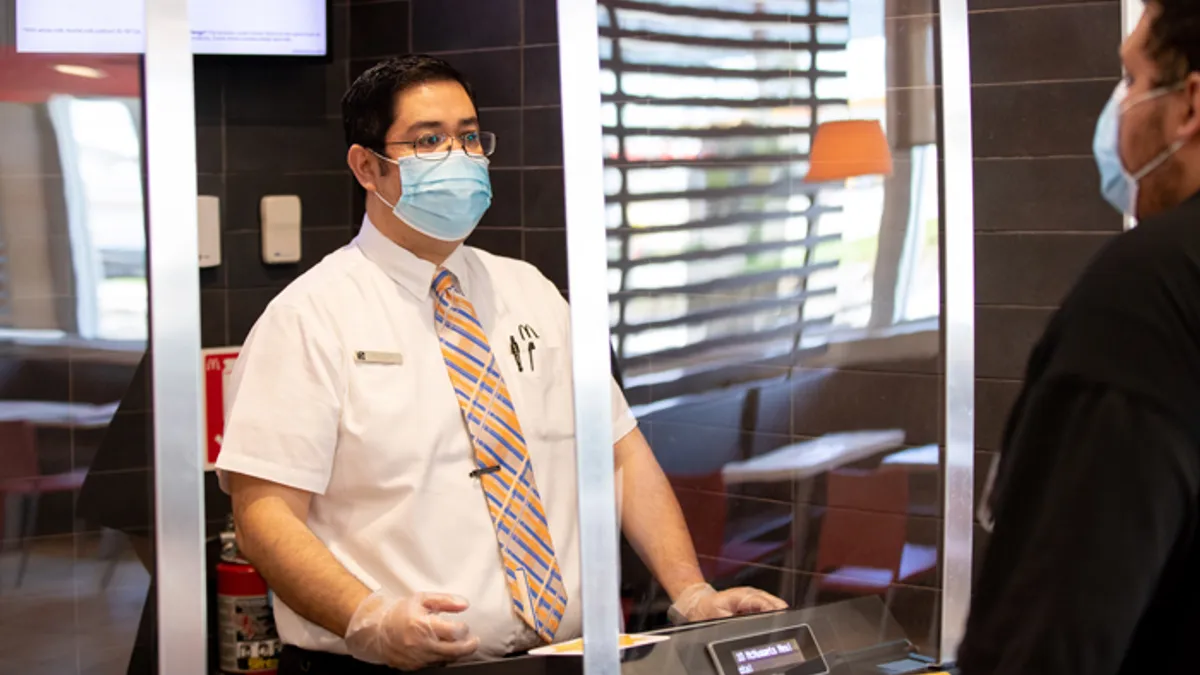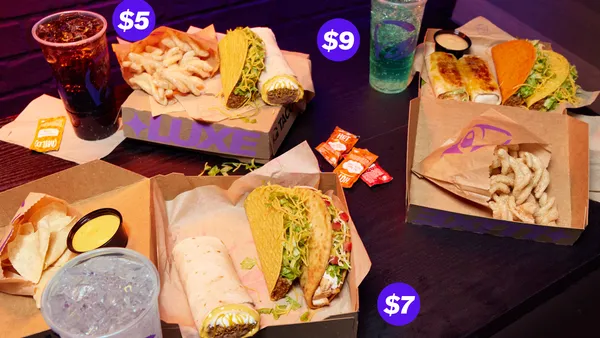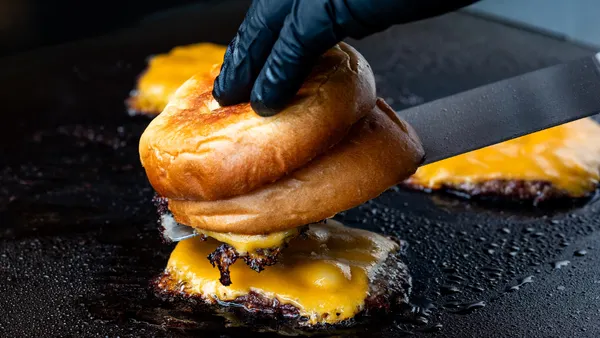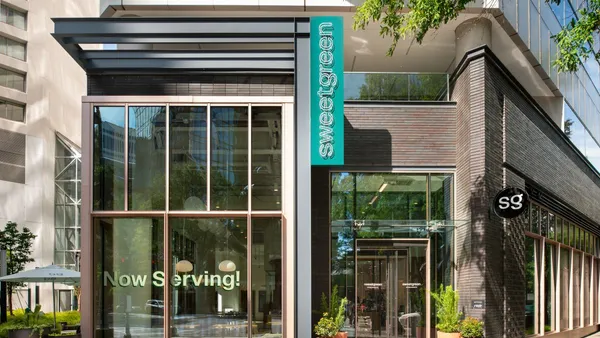Dive Brief:
- McDonald's will require customers to wear face coverings in its U.S. restaurants beginning Aug. 1, the company said on Friday. Additionally, the fast food chain is pausing dining room re-openings for 30 more days and is installing divider panels and retrofit barrier solutions for front- and back-of-house.
- The company cites guidance from the Centers for Disease Control, which states that face coverings are an effective way to prevent the spread of the novel coronavirus. Nearly 82% of McDonald's restaurants are in states or localities that require facial coverings for employees and customers, according to the release.
- These updates add to McDonald's current policies, like employee wellness checks and a 59-page reopening guide.
Dive Insight:
McDonald's mandate comes as COVID-19 cases continue to rise in many states, with national numbers surpassing 4 million cases on July 23. This new requirement shouldn't be too big of a change for the QSR giant, but will bring the remaining roughly 20% of its network under CDC compliance. The announcement also comes about two weeks after Starbucks' similar requirement. Now that the two largest U.S. restaurant chains have put this specific mandate into place, it could create a ripple effect on the rest of the industry to follow suit.
Most restaurants already require their staff to wear masks, but requiring customers to do can be more complicated. But despite some public confrontations by anti-mask customers — which have gone viral on social media and have even forced some restaurants to close — most Americans (72%) wear a mask "always" or "very often," according to recent Gallup data. Indeed, safety has become a top priority for customers. Net sentiment for "cleanliness" improved by nearly 20 percentage points from April to June, for example. In Zagat's Future of Dining study, three out of four diners cited health and safety concerns as the biggest deterrent to eating out at restaurants. A mask requirement could ease some of those concerns for McDonald's diners.
Still, McDonald's is attempting to be proactive should there be any such resistance from customers unwilling or unable to wear a face covering.
"In those situations … we'll put in place additional procedures to take care of them in a friendly, expedited way," the company said in the announcement. McDonald's is also providing training to corporate and franchise employees to address the new policy in "a friendly and positive way," and is revisiting its de-escalation training.
New training could incur additional costs for franchisees, as could new features like divider panels. Such added safety efforts aren't cheap, which is an added challenge for operators as sales slump. During Darden Restaurant's Q4 earnings call in late June, for example, executives noted that the company incurred over $5 million in incremental cleaning supplies and personal protective equipment related to COVID-19.
Franchisees could also be hurt by McDonald's delay in dining room reopenings, though a majority of the chain's business comes from the drive-thru, so that could insulate the company a bit.











